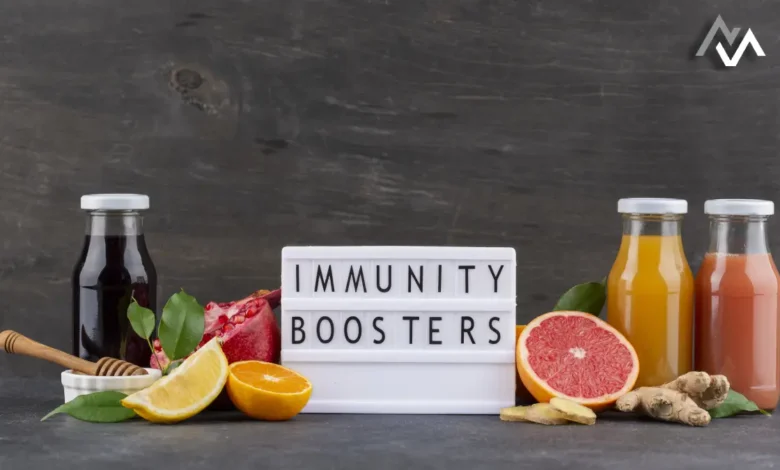5 Effective Ways to Naturally Boost Your Vitamin D Levels

Vitamin D, often called the “sunshine vitamin,” plays a crucial role in maintaining strong bones, supporting immune function, and regulating mood. With many people spending more time indoors and leading sedentary lifestyles, vitamin D deficiency has become increasingly common. This deficiency can lead to weakened bones, fatigue, and a reduced ability to fight off infections. Fortunately, there are natural ways to increase your vitamin D levels. In this article, we’ll explore five practical and natural tips to help you maintain optimal vitamin D levels.
1. Spend More Time in Sunlight
The sun is the most powerful and natural source of vitamin D. When your skin is exposed to sunlight, it produces vitamin D on its own. However, several factors can affect how much vitamin D your body can produce. These include your location, skin tone, the time of day, and the season.
How to Maximize Sun Exposure:
- Aim to spend around 15-30 minutes in the sun between 10 AM and 3 PM, when the sun’s rays are the strongest.
- Try to expose larger areas of your skin, such as your arms, legs, and back, rather than just your face and hands.
- Keep in mind that wearing sunscreen, while important for protecting your skin from harmful UV rays, can reduce the amount of vitamin D your skin produces. However, a short period of sun exposure without sunscreen can help with vitamin D synthesis. Be sure to strike a balance to avoid sunburn or skin damage.
2. Incorporate Vitamin D-Rich Foods into Your Diet
Although sunlight is the best natural source of vitamin D, it’s also possible to get it from certain foods. A diet rich in vitamin D not only supports your body’s overall well-being but also helps to maintain your levels during the colder months when sunlight may be less available.
Vitamin D-Rich Foods to Include:
- Fatty Fish: Salmon, mackerel, and sardines are all high in vitamin D.
- Egg Yolks: Eggs, particularly their yolks, are another excellent source of vitamin D.
- Mushrooms: Some mushrooms, like shiitake, can produce vitamin D when exposed to sunlight.
- Fortified Foods: Many dairy products, cereals, and plant-based milks (such as soy or almond milk) are fortified with vitamin D. Check labels to ensure they contain added vitamin D.
By incorporating these foods into your daily meals, you can help keep your vitamin D levels in check, especially if you have limited sun exposure.
3. Consider Taking Vitamin D Supplements
If you’re unable to get enough vitamin D from sunlight and food, supplements are a convenient way to ensure you’re meeting your body’s needs. Vitamin D supplements come in two forms: vitamin D2 (ergocalciferol) and vitamin D3 (cholecalciferol). Vitamin D3 is generally more effective at raising and maintaining overall vitamin D levels in your bloodstream.
Dosage Recommendations:
- The recommended daily intake of vitamin D varies depending on age, health conditions, and location. For most adults, 600-800 IU (International Units) is a standard daily dose. However, those with a severe deficiency may require a higher dosage as recommended by a healthcare provider.
- It’s important to consult your doctor before starting any supplement regimen, as excessive vitamin D can lead to toxicity and other health complications.
4. Exercise Outdoors
Physical activity, combined with exposure to natural sunlight, is a great way to boost your vitamin D levels. Outdoor activities such as walking, running, or cycling allow you to soak up the sun and encourage your body’s production of vitamin D.
Benefits of Outdoor Exercise:
- Regular outdoor exercise ensures that you’re receiving both physical and mental health benefits. Fresh air and sunlight can enhance your mood and energy levels, while also supporting your immune system.
- Outdoor activities like hiking, gardening, and team sports can also expose more skin to the sun, improving your vitamin D synthesis. Remember to choose an activity you enjoy, which will make it easier to maintain a consistent routine.
5. Monitor Your Vitamin D Levels Regularly
It’s essential to stay aware of your vitamin D levels, especially if you belong to a group at higher risk of deficiency, such as older adults, those with darker skin tones, or individuals living in areas with limited sunlight. A simple blood test can measure your vitamin D levels and help you understand if you’re getting enough from your current routine.
Why Monitoring Matters:
- Regularly tracking your vitamin D levels ensures you take proactive steps to prevent deficiency. This can help protect your bones, improve immune function, and enhance overall vitality.
- If your levels are too low, your doctor can recommend changes to your diet, sun exposure, or supplements to improve them.
Conclusion
Maintaining optimal vitamin D levels is vital for your overall health, and it’s easier than you might think to achieve naturally. By spending more time outdoors, consuming vitamin D-rich foods, considering supplements, and regularly monitoring your levels, you can ensure your body gets the “sunshine vitamin” it needs to thrive.




